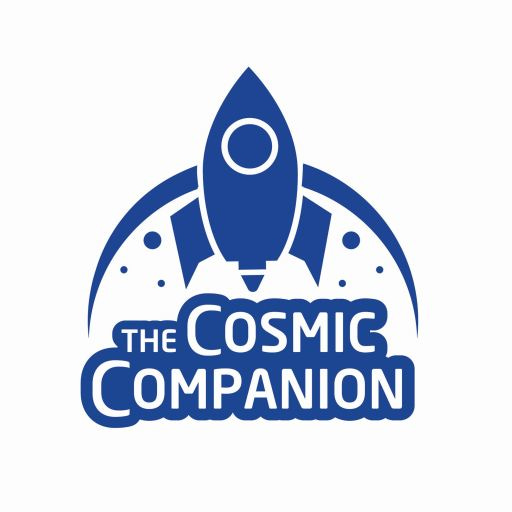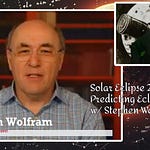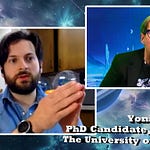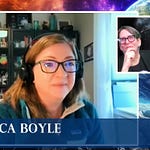Hello everyone!
We are back from summer break with an amazing guest, Richard Dinan, founder of Pulsar Fusion (Yeah. The guy from Made in Chelsea!).
Kicking off the second half of our seventh season, we offer you a look at how the human race might take our first steps to becoming an interplanetary species.
Later in the show, we will be talking with Richard Dinan, founder and CEO of Pulsar Fusion, about spacecraft powered by nuclear fusion. Neat-O, Wally!
Watch the video version of our episode with Richard Dinan below!
Richard Dinan of Pulsar Fusion talks with James Maynard 5 August 2023. Creative Commons 4.0 Attribution 2023 The Cosmic Companion.
The first step in our cosmic odyssey is the establishment of networks of space stations in low Earth orbit. These floating havens will be our training ground for learning to live and work in the unforgiving environment of space.
As we extend our stays on these celestial platforms, we will perfect life support systems, sustainable recycling techniques, and develop revolutionary 3D-printing technologies, capable of assembling structures in space without human assistance. This technology would allow anyone to design homes on Earth or beyond from simple rotating spheres to mid-century modern, or their own Barbie-themed space station.
Some of these outposts would also serve as spaceports, launching supplies and human crews to far-flung destinations. Without the need to escape the atmosphere of Earth, spaceflight will become far easier, safer, and much less expensive.
With space stations as our steppingstones, the next destination on our voyage is the Moon. The Moon has always beckoned us with its silvery charm, and now, with modern technology at our fingertips, we have the means to make it our second home.
A lunar outpost mission, including robotic explorers mapping the terrain and scouting ideal locations for our lunar bases, is the next step in reaching for the stars. The South Pole of the Moon is home to vast storehouses of water ice, which can be harvested and converted into drinkable water and breathable oxygen. Additionally, it’s a valuable resource for hydrogen, an essential element for fueling spacecraft and sustaining habitations.
To propel us toward these extraterrestrial destinations, we’ll need powerful, efficient engines, and that’s where nuclear fusion technology likely comes into play. Nuclear fusion engines are like the holy grail of propulsion, producing energy by fusing atoms together, much like our Sun. Imagine the potential: abundant, clean energy that could fuel spacecraft for interplanetary travel. While it remains a challenging feat to master nuclear fusion, progress in this field is accelerating, and it holds the key to widespread human habitation in space.
Next up, we talk with one of the visionaries creating this powerhouse to the stars: Richard Dinan, founder and CEO of Pulsar Fusion.
As we leap from the Moon to the fiery, rust-colored landscapes of Mars, we embark on our boldest endeavor yet: bringing humans, in large numbers, to another world. The Red Planet holds tantalizing secrets of its past, and it beckons us to make it our new home away from home.
The journey to Mars is not for the faint-hearted, and robotic missions will pave the way for human settlers. Martian habitats will likely be a combination of underground shelters and 3D-printed structures, offering protection from cosmic radiation and extreme conditions. Living sustainably on Mars means harnessing local resources: generating oxygen from carbon dioxide in the atmosphere and growing food using Martian soil or hydroponics.
With fusion-powered spacecraft propelling us through the vastness of space, our journeys to the Red Planet become more feasible and faster than ever before. Reduced travel time means space travelers can spend more time on the Martian surface, conducting in-depth scientific research and laying the groundwork for future generations of explorers.
The technological marvels we create to live in space will not only enrich our lives in the cosmos but also revolutionize life back on Earth. Advanced recycling systems will reduce waste and pollution, and innovations in healthcare and life support systems will improve medical care for everyone. The space economy will flourish, creating jobs and opportunities that we can’t yet imagine.
[Zero-G yoga instructor! Alien virologist! Interplanetary gaming champion!]
Our destiny is entwined with the stars, and it is up to us to make this vision of humanity moving beyond our planetary cradle a reality. Together, we can traverse the cosmos, build our new homes on distant worlds, and forge a future that shines as brightly as the stars themselves. So, let us set forth on this grand journey, hand in hand, and turn our cosmic dreams into an awe-inspiring, extraordinary reality.
Next week on The Cosmic Companion, we will discuss two of the greatest mysteries in the Universe — dark matter and dark energy, which make up about 95% of everything out there. We’ll be talking with René Laureijs, Project Scientist on the Euclid mission, recently launched by the European Space Agency. Make sure to join us starting on 12 August.
We’re trying something new this week - embedding our video episode, hosted on Substack, directly into the newsletter, rather than as a link to an outside provider. Please let me know what you think!
If you enjoyed this episode of The Cosmic Companion, please download, share, and tell your friends all over the Cosmos about the show. It’s much appreciated.
Clear skies!
James
























Finding Our Home Among the Stars- w/ Richard Dinan, Founder of Pulsar Fusion